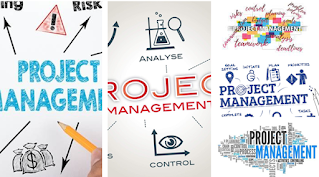Mastering Project Management Techniques: From Choice to Implementation
Project management techniques form the framework within which a project unfolds, the guiding star that navigates the intricate landscape of task allocation, resource management, and timeline optimization. From the clear roadmap provided by the Waterfall model to the dynamic adaptability of Agile methodologies, these techniques equip project managers with the tools necessary to turn potential chaos into a symphony of progress.
The question then arises - with a plethora of techniques to choose from, how does one determine the most suitable for their project? There's no one-size-fits-all answer, as the choice largely depends on factors like the nature of the project, the team's familiarity with the technique, client expectations, and timeline constraints. For example, if you're dealing with a project with a static set of requirements and a strict timeline, the Waterfall method, with its linear, stage-by-stage approach, could be your best bet. On the other hand, if the project is likely to evolve over time, Agile methodologies that embrace change and promote continuous feedback can come in handy.
However, choosing a technique is only the first step. Successfully implementing it requires strategy and commitment. Here are a few tips to assist you in making the most out of your chosen project management technique:
Training and Familiarization: Ensure your team is thoroughly familiar with the chosen technique. Conduct training sessions if needed. A technique is only as good as the team's understanding and execution.
Communication is Key: Regular communication helps in identifying and resolving issues early. Use your chosen technique as a framework for structuring this communication.
Leverage Tools: Plenty of project management software tools exist that can help you streamline the process, from tracking progress to managing resources. These tools often support various methodologies and can prove invaluable in your project management journey.
Adapt and Evolve: The hallmark of a successful project manager is the ability to adapt. If something isn't working, don't hesitate to adjust your approach or even change the technique altogether. Your technique should serve your project, not the other way around.
Review and Reflect: Once the project is complete, take the time to review the process. What worked? What didn't? Use this information to refine your choice and implementation of project management techniques in the future.
In conclusion, the success of a project is often a reflection of the effectiveness of the project management techniques employed. By understanding and strategically implementing these techniques, you not only increase the chances of your project's success but also enhance your team's productivity and morale.
So, as you embark on your next project, remember: your technique is your tool. Choose it wisely, wield it expertly, and watch as your project transforms from a daunting task into a masterpiece of management.
Stay tuned to our blog for more insights into project management techniques and tools. We aim to provide the resources and knowledge you need to take your project management skills to the next level. Until next time, happy project managing!
Have nice and successful projects,
Grp2ALL
About the Authors
All the writers in this blog are certified Project Management Professional with over a decade of experience in the field. They have managed various successful projects in diverse industries and now share their knowledge and insights through writing and teaching.



